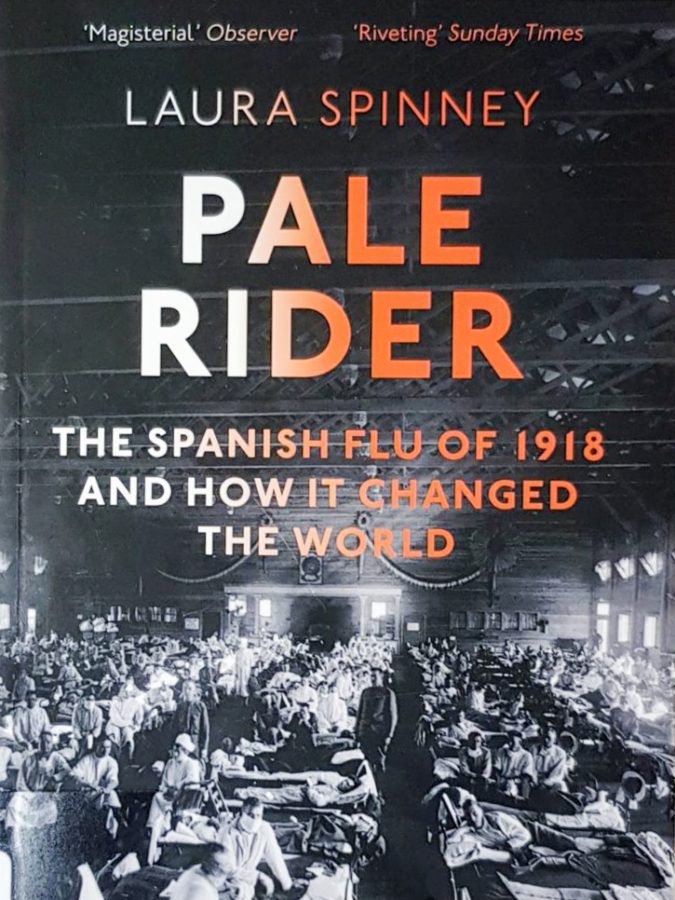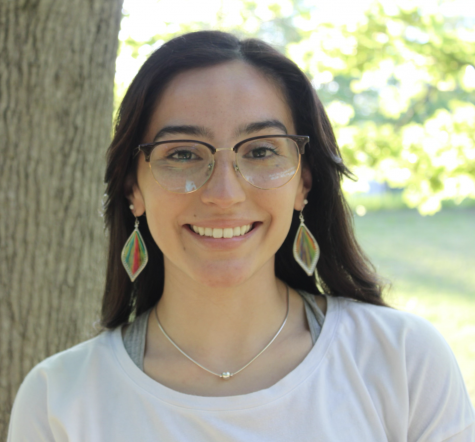Suffolk University’s Ford Hall Forum dove into the history of the 1918 Spanish Flu and its parallels with the COVID-19 pandemic during a conversation with Laura Spinney, author of “How the 1918 Spanish Flu Changed the World.”
The Oct. 7 event was brought to the Suffolk community by the university and GBH. Susan Spurlock, program manager and public policy/service consortium for the Ford Hall Forum, introduced the audience to Spinney and her novel.
“The novel has been described as riveting, terrifying, heartbreaking and informative,” said Spurlock.
The panel featured moderator Udodiri R. Okwandu, a PhD candidate at Harvard University. Okwandu started the discussion by asking Spinney why she wrote about the Spanish Flu.
According to Spinney, the past 500 years has had more pandemics than society discusses. Some of these include the Russian flu (1889-1893), Severe Acute Respiratory Syndrome (SARS) (2002-2003) and the Swine flu (2009-2010). However, she realized that not many people knew the history of the Spanish flu.
“It seemed like there was a huge hole in our memories,” said Spinney.
The author gave an overview of the Spanish Flu and explained that this particular pandemic struck in three waves.
In the first wave, the United States was fighting WWI in early 1918 and had thousands of U.S. soldiers traveling for deployment, beginning the worldwide spread. The second wave occurred later in 1918, when a lack of medical personnel in America caused 50 million people to die. The last wave occurred in the spring of 1919, with the pandemic finally subsiding that summer.
Spinney was asked why the United States has exceeded the Spanish Flu’s death rate, despite having prior experience with pandemics.
The science journalist noted that 1918 didn’t have diagnostic tests and the U.S. population was only a third of what it is now, making much of this previous information “unreliable.” Spinney also added that the country is now wealthy and advanced in medicine, which was not the case in 1918.
“Every pandemic is caused by a novel disease, that’s why it’s a pandemic,” said Spinney. “We are always helpless at the beginning [of pandemics/diseases]. The question is how fast can we administer the tests for it?”
Similar to nicknames for COVID-19, calling the 1918 pandemic the “Spanish Flu” is not historically accurate, as Spinney noted the virus was not Spanish. Researchers today do not know where exactly the virus originated.
She added that when there’s an issue at hand, it’s natural to give that issue a name, even if it’s an incorrect name. Spinney explained that false news such as this tends to stick, which is what happened with COVID-19, with many people pinning the blame of its spread on China.
“We knew there was a new infection in China and we watched it unfold and happen,” said Spinney.
As the world remains divided on COVID-19 precautions and vaccinations, the topic of ignorance was also discussed at the event. Spinney described ignorance as a “default state” when the COVID-19 pandemic first hit because nations didn’t know a lot about it. The world didn’t know how diseases traveled, which is how conspiracy theories began, like they did in 1918.
“Fake news travels with real news,” said Spinney. “It travels at a great volume and many people are misled, even when they feel well informed.”














